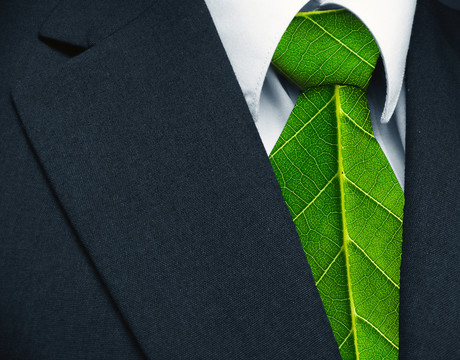Achieving your sustainability goals does not mean sacrificing profits

Nearly 90% of business leaders believe that sustainability is essential to remaining competitive and despite the clear link between sustainability and profit, only 2% of companies either achieve or exceed their sustainability goals.
At this year’s World Economic Forum in Switzerland, it was identified that the most sustainable companies are not just doing good for society, they’re also thriving financially. In fact, since 2005, the most sustainable businesses have outperformed their peers by nearly a third.
But with a mere 2% achieving their targets, what is it they’re doing that fuels their success?
Sustainable businesses succeed because sustainability is a non-negotiable business priority that aligns with their company goals. An unwavering commitment to company goals means it’s unlikely that sustainability initiatives come undone.
Conversely, failing to align sustainability and business objectives is a common reason sustainability programs fall off the radar and companies miss their sustainability targets. In fact, only 25% of business leaders indicate that their companies have developed a clear business case for sustainability.
Sustainability in action, every day
Sealed Air was an early adopter of business-driven sustainability plans and, today more than ever, sustainability underpins all we do, while driving cost-competitiveness, performance and service to our customers and markets.
Committed to sustainability and its vision to “create a better way for life”, Sealed Air is actively engaged in conducting sustainability audits to help food processors and retailers achieve their sustainability goals.
With the right approach, sustainability doesn’t mean lost profits — it often unveils profit opportunities that weren’t previously visible. For example, operational efficiency is a key sustainability metric that can be impacted through packaging materials and packaging systems. For instance, finding opportunities that enable processors to increase throughput in less time and reduce energy and resource usage and minimising plastic consumption can make a difference.
For some, a crucial business sustainability goal is to build a less wasteful food supply chain. The shelf life of food and food safety are fundamental areas where we can move the needle on food waste and food accessibility.
By 2050, it is said that we will need to increase our global food production by 70% to meet the needs of the world’s expected 9 billion population. We know this is likely to mean exhausting our natural resources at a rate faster than the rate at which they can be replenished. Clearly this is not sustainable. Solving waste in the food supply chain is an area of huge opportunity to deliver sustainable value for all stakeholders, consumers included.
Collaboration across the industry, with local authorities and the government is required to drive change with magnitude. While processors can optimise the freshness of their harvests, packaging solutions such as Sealed Air’s Cryovac Darfresh vacuum skin packaging are examples of key enablers for a more sustainable food supply chain. Fresh protein processors including Harvey Beef and Don KRC (Australia) have extended the shelf life of beef to 35 days and pork to 28 days, a significant step change when compared to other packaging technologies.
So, how is this sustainable? When the shelf life is extended, the product can travel safely, be distributed farther and wider geographically. For retailers, this can mean reduced retail shrink (profit loss). For consumers, shelf life extension means more time to consume the product and potentially reduce food waste in the home (rotate that food!).
Another great example of extending shelf life was with avocado processor Fresh Technologies (New Zealand). Best-in-class processing technologies, coupled with the use of Cryovac Freshness Plus packaging, enabled a shelf life extension of avocado product from 30 days to 90 days, yielding a reduction in food waste by 7.2 tonne per annum, in addition to all the sustainability gains mentioned in the previous example.
Beyond designing for shelf life, efficient material design can yield sustainable benefits for warehousing and freight. Cryovac Darfresh skin packaging provides processors a shorter tray and pack height versus conventional MAP trays. This means less space is needed for warehousing and freight space. Less truck movements to distribute product, less trucks on the roads means less fuel. Sustainability really is targeting opportunities where we can find ways to do more with less. It’s not just about pollution, landfill and litter reduction.
Opportunities to make a sustainable difference are everywhere and they should not be an obligation. Not only is this the right thing to do, but it’s the economically expedient thing to do. Sustainable practices can save money and boost profits.
Source: UN Food and Agriculture Organisation (FAO)
Turning sustainability into an advantage in food and beverage
Nearly half of all Australian shoppers are influenced by sustainability when making purchases,...
The 'flour effect' pathway to Scope 3 emission cuts
An Australian Study reveals how a simple ingredient could become a climate solution for food...
Whey to go up: unlocking further potential for cheese by-product
A new mixed-method study explored four models that could provide potential for the Australian...











